As one prepares for university, it is paramount to remain informed about significant global developments. Such awareness can offer a distinct advantage in one’s academic pursuits. A notable event that stands out in the international economic landscape is the G20.
The G20 Summit 2023, in particular, is of immense relevance, with India’s G20 Presidency marking a pivotal moment in G20 history. It is essential to understand the intricacies and implications of such forums. Let us explore further.
A Look Into the G20 History
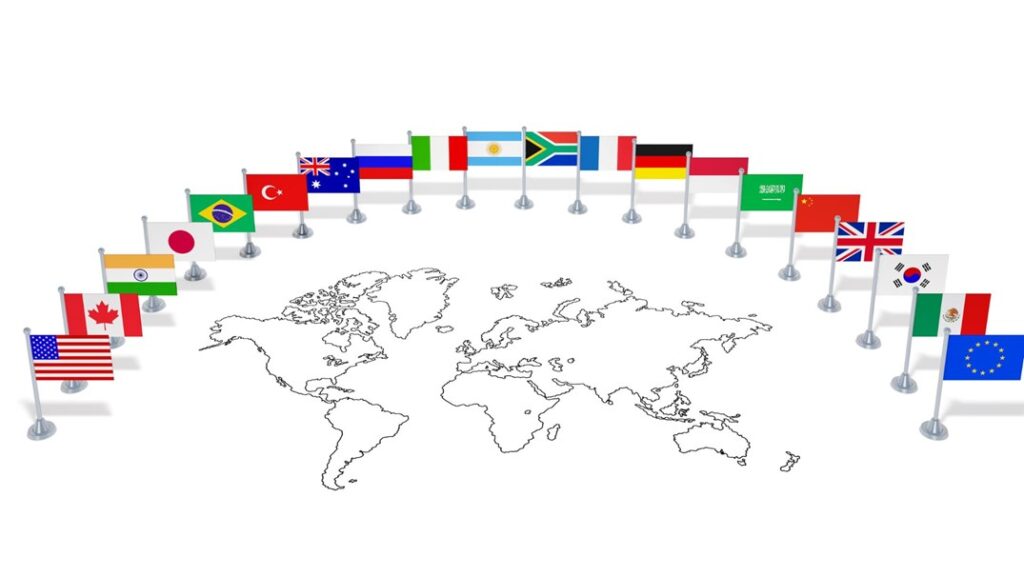
The G20, or Group of Twenty, emerged in response to the Asian financial crisis of 1999. Originally proposed by the United States in 1998, it acknowledged the need for a forum where the world’s foremost economies could convene.
Collectively, the G20 nations account for roughly 80% of the global GDP, 75% of international trade, and house two-thirds of the world’s population.
Initially conceptualised as a platform for finance ministers and central bank governors to discuss macroeconomic issues, the G20’s scope has since expanded, covering areas such as trade, investment, climate change, and health.
The G20 Summit 2023, hosted by India as part of its G20 Presidency, will be the latest in the annual series of meetings involving leaders from G20 nations.
The G20’s commendable effort in fostering dialogue amongst key global economies on pressing economic and financial issues isn’t without criticism. Some argue it lacks transparency and accountability, with claims that it predominantly favours the interests of developed nations.
Nevertheless, the G20 remains a pivotal forum for global economic cooperation, promoting alignment on matters affecting the international economy and playing a role in enhancing global economic stability and growth.
Here’s a concise G20 history:
- 1998: Post the Asian financial crisis, the US introduces the concept of a G20 summit.
- 1999: The G20 is officially established at the G7 Finance Ministers’ meeting on 26 September.
- 2000: Berlin, Germany, holds the inaugural G20 summit.
- 2008: The G20 summit’s significance rises to include Heads of State/Government post the global financial meltdown.
- 2009: Financial system reforms are greenlighted at the Pittsburgh, USA G20 summit.
- 2010: Toronto, Canada’s G20 summit endorses a plan to mitigate global imbalances.
- 2011: The Cannes, France G20 summit agrees on measures to stimulate the global economy.
- 2012: Strategies against tax evasion and corruption receive approval at the Los Cabos, Mexico G20 summit.
- 2013: Sustainable development initiatives are greenlit at the Saint Petersburg, Russia G20 summit.
- 2014: Climate change measures are adopted at the Brisbane, Australia G20 summit.
- 2015: The Paris Climate Agreement’s implementation strategy is approved in Antalya, Turkey.
- 2016: Hangzhou, China’s G20 summit agrees to boost global growth and promote open trade.
- 2017: Hamburg, Germany sees the G20 commit to counter-terrorism and enhance global security.
- 2018: The World Trade Organisation’s reform plan is endorsed in Buenos Aires, Argentina.
- 2019: Commitments to strengthen free trade and investment are made in Osaka, Japan.
- 2020: Due to COVID-19, the G20 summit is virtually held in Riyadh, Saudi Arabia.
- 2021: Post-COVID-19 global economic recovery measures are sanctioned in Rome, Italy.
- 2022: The Bali, Indonesia G20 summit introduces various global initiatives, including the Global Infrastructure Initiative, Climate Finance Partnership, Global Food Security Compact, and Global Health Security Agenda.
Though a relatively young institution, the G20 has already achieved significant milestones. With economies becoming increasingly interconnected, the importance of the G20 is anticipated to grow in the years ahead.
Members of the G20 and Institutions Associated With It
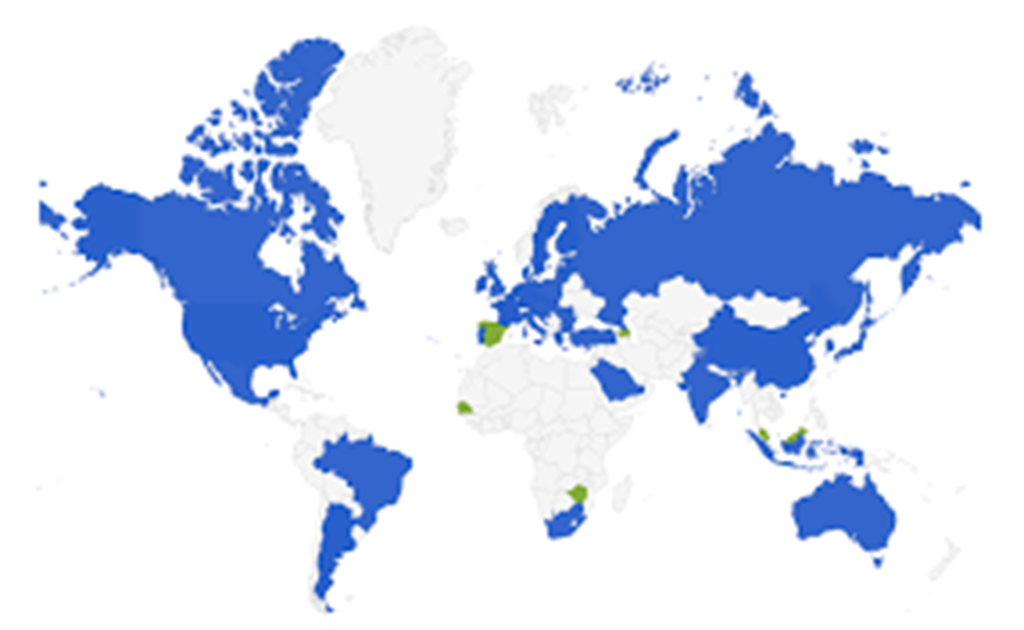
The G20, standing for the Group of Twenty, is an esteemed international forum comprising the world’s 20 predominant economies. Every year, this assembly convenes to harmonise economic and fiscal strategies whilst also addressing pressing global challenges such as climate change and terrorism.
Here are the current principal representatives from the G20 nations:
- Argentina: President Alberto Fernández, who presently holds the G20 Presidency.
- Australia: Foreign Affairs Minister, Penny Wong.
- Brazil: Economy Minister, Paulo Guedes.
- Canada: Finance Minister, Chrystia Freeland.
- China: Vice Premier, Liu He.
- France: Minister of Economy, Finance and Recovery, Bruno Le Maire.
- Germany: Minister for Economic Affairs and Climate Action, Robert Habeck.
- India: Prime Minister, Narendra Modi, marking India’s G20 Presidency in 2023.
- Indonesia: Finance Minister, Sri Mulyani Indrawati.
- Italy: Minister of Economy and Finance, Daniele Franco.
- Japan: Finance Minister, Shinichi Suzuki.
- Republic of Korea: Strategy and Finance Minister, Choo Kyung-ho.
- Mexico: Secretary of Finance and Public Credit, Rogelio Ramírez de la O.
- Russia: Minister of Economic Development, Maxim Reshetnikov.
- Saudi Arabia: Finance Minister, Mohammed Al-Jadaan.
- South Africa: Finance Minister, Enoch Godongwana.
- Turkey: Treasury and Finance Minister, Nureddin Nebati.
- United Kingdom: Chancellor of the Exchequer, Rishi Sunak.
- United States: Treasury Secretary, Janet Yellen.
- European Union: European Commission President, Ursula von der Leyen.
Several renowned institutions are intrinsically linked with the G20, offering expertise and support to its cause:
- International Monetary Fund (IMF): Provides fiscal assistance to countries.
- World Bank: Extends loans and counsel to developing nations.
- Financial Stability Board (FSB): Monitors global financial equilibrium.
- Organisation for Economic Co-operation and Development (OECD): Centres its efforts on economic development and trade.
- United Nations (UN): Engages with global concerns such as peace, security, and human rights.
Though the G20 is not an established institution per se, the forum collaborates closely with the aforementioned entities. This integration ensures that the G20 has access to comprehensive insights, advice, and assistance, thus empowering global leaders to make well-informed economic decisions.
A brief look at G20 history would reveal its enduring significance in the global economic landscape, and with the G20 Summit 2023 being hosted by India, its importance only continues to ascend.
India’s G20 Presidency: A Year of Opportunities
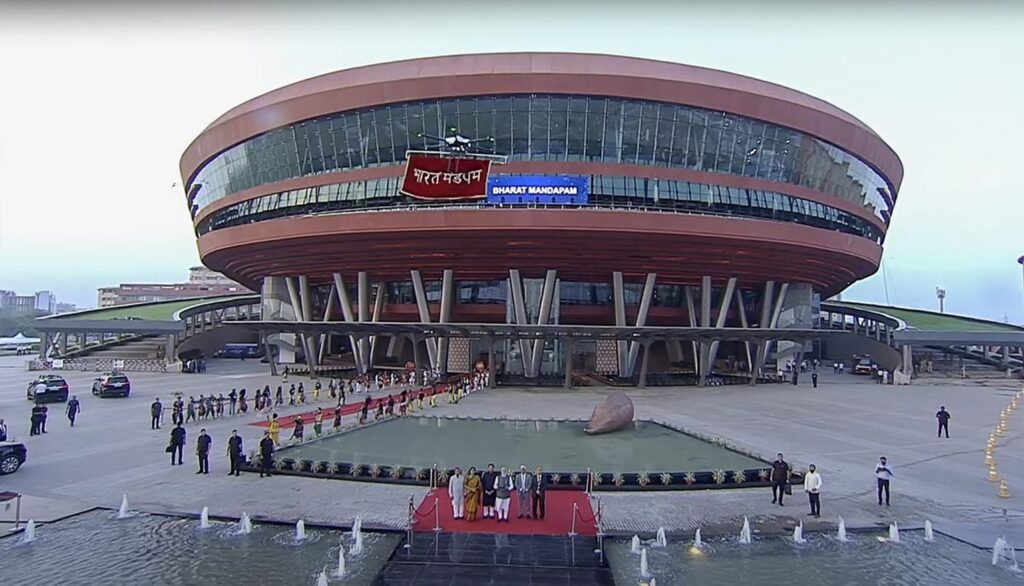
In 2023, India takes on a pivotal role with its assumption of the G20 Presidency. Under the stewardship of Prime Minister Narendra Modi, India embodies not only the hopes of its own citizens but also the aspirations of the developing world at large.
The agenda is unambiguous: fostering recovery from the COVID-19 pandemic, taking robust measures on climate change, strengthening global health infrastructure, and championing a digital transformation.
The G20 Summit 2023, set against the backdrop of India’s G20 Presidency, promises to be an instrumental chapter in G20 history, illustrating India’s commitment to global challenges.
G20 Summit 2023: What’s in Store?
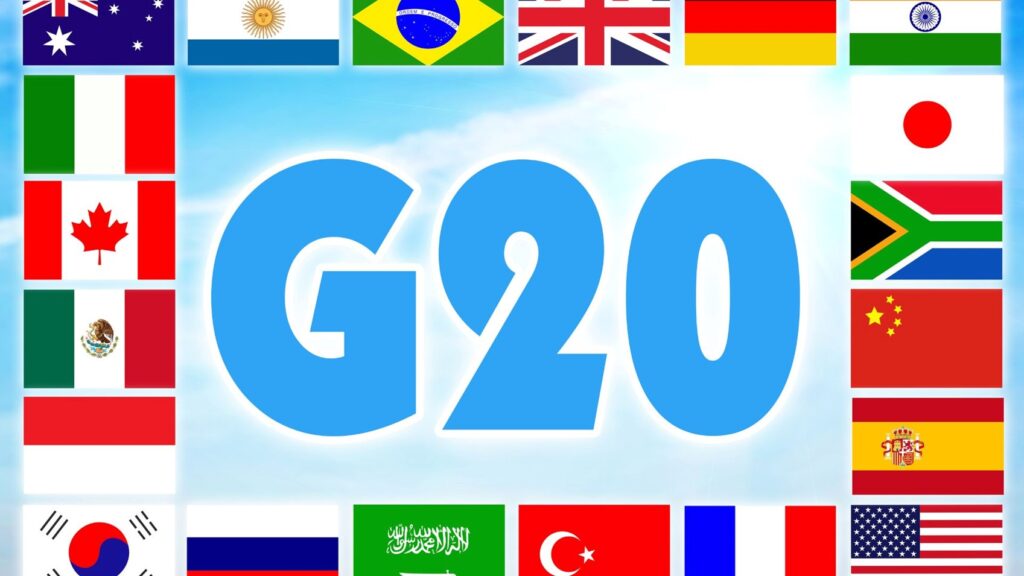
From 8th to 10th September 2023, India stands centre stage as it welcomes world leaders for the G20 Summit 2023. Although the G20 is principally comprised of 20 nations, its considerable global economic resonance means that several additional countries are also invited as guests, accompanied by a myriad of international and regional organisations.
The international community is poised to closely observe this paramount global assembly.
The guest nations for the G20 Summit 2023 are as follows:
| Country | Leader | Position |
| Bangladesh | Sheikh Hasina | Prime Minister |
| Comoros | Azali Assoumani | President |
| Egypt | Abdel Fattah el-Sisi | President |
| Mauritius | Pravind Jugnauth | Prime Minister |
| Netherlands | Mark Rutte | Prime Minister |
| Nigeria | Bola Ahmed Tinubu | President |
| Oman | Haitham bin Tariq | Sultan |
| Rwanda | Paul Kagame | President |
| Singapore | Lee Hsien Loong | Prime Minister |
| Spain | Pedro Sánchez | Prime Minister |
| United Arab Emirates | Mohamed bin Zayed Al Nahyan | President |
G20 Summit 2023 Itinerary
The G20 Summit 2023 will encompass a succession of meetings at varied venues across a two-week span, with venue rotations serving to facilitate security. The pivotal dates for the G20 Summit 2023 are:
- Finance Deputies Meeting: 5-6 Sep, New Delhi
- Joint Sherpas and Finance Deputies Meeting: 6 Sep, New Delhi
- G20 Summit: 9-10 Sep, New Delhi
- 4th Sustainable Finance Working Group Meeting: 13-14 Sep, Varanasi
- 4th Global Partnership for Financial Inclusion Meeting: 14-16 Sep, Mumbai
- 4th Framework Working Group Meeting: 18-19 Sep, Raipur
Central Themes of G20 Summit 2023
The G20 summit’s core objective remains the deliberation on international dynamics that influence the global economy and trade. Under India’s G20 Presidency this year, discussions will prominently feature themes such as:
- Climate Change,
- Debt,
- Multinational Corporation Taxation,
- Currency Regulations,
- Food and Energy Security,
- Sustainability, and
- Geopolitical Conflicts,
providing a fresh chapter to the G20 history.
Why Does the G20 Summit 2023 Matter to You?
For those poised to embark upon their university journeys, understanding the relevance of the G20 Summit 2023 might initially seem arcane. Yet, its significance is paramount. The resolutions forged at this summit will delineate the global landscape you are about to enter and the prospects it holds.
Regardless of your ardour – be it technology, finance, environmental advocacy, or public health – the decisions of the G20 under India’s G20 Presidency will invariably leave an imprint upon these sectors. Delving into the G20 history further underscores its pivotal role in shaping international economic policies and practices.
Major Achievements of G20 2023
Held in New Delhi under India’s Presidency, the G20 Leader Summit concluded successfully with various new initiatives and developments. The following are the key achievements from the summit:
- Voice of the Global South Summit: India hosted this inaugural event, allowing 125 countries to voice their concerns and objectives.
- Strong, Sustainable, Balanced, and Inclusive Growth: The G20 reaffirmed its commitment against protectionism and to foster a favourable trade and investment environment. They also aimed to enhance macro policy cooperation and support for the 2030 Agenda for Sustainable Development.
- Accelerating Progress on Sustainable Development Goals (SDGs): Focus on women’s empowerment, health, education, digital transformation, AI, data advances, food security, nutrition, and foundational learning. The Delhi Declaration also emphasized the importance of the Data for Development Capacity Building Initiative.
- Green Development Pact for a Sustainable Future: G20 leaders approved a pact to accelerate actions addressing environmental and climate change issues. This includes financing, greenhouse gas emission reduction, sustainable development, and eliminating plastic pollution.
- Multilateral Institutions for the 21st Century: Emphasis on the international development financing system and stronger Multilateral Development Banks (MDBs). There was also an agreement on a framework for debt relief for Zambia, Ghana, and Ethiopia.
- Technological Transformation and Digital Public Infrastructure: India highlighted the concept of “digital public infrastructure”, showcasing achievements such as the UPI, Aadhaar, and a platform for sharing personal data securely.
- International Taxation: Progress was made on a two-pillar approach for taxing multinational corporations and addressing global taxation challenges.
- Gender Equality and Empowering Women and Girls: G20 reiterated the importance of gender equality and launched the G20 Association for the Empowerment and Progression of Women’s Economic Representation (EMPOWER).
- Financial Sector Issues: Focus on mobilizing resources for climate finance, with a commitment to mobilizing $100 billion in climate finance per year by 2020.
- Countering Terrorism and Money Laundering: The declaration denounced terrorism in all its forms and supported the needs of the Financial Action Task Force (FATF).
- Creating a More Inclusive World: India’s efforts led to the inclusion of the African Union as a permanent member of the G20. The launch of the Millets and Other Ancient Grains International Research Initiative (MAHARISHI) also took place.
- Global Rail and Port Agreement: A new agreement that connects the Middle East and South Asia was unveiled, aiming to benefit low- and middle-income countries.
- India-UK Free Trade Agreement: India and the UK agreed to resolve outstanding issues for a free trade agreement.
- Freedom and Rights Emphasis: The summit highlighted the interdependence of various rights like freedom of religion, expression, assembly, and association.
India’s G20 Presidency theme, “One Earth, One Family, One Future,” was reflective of its priorities, which ranged from green development, technological transformation, and women-led development to international peace and harmony. With India at the helm, there was an increased emphasis on the voices and concerns of the Global South and developing nations.
What Does Hosting G20 Summit 2023 Mean for India?
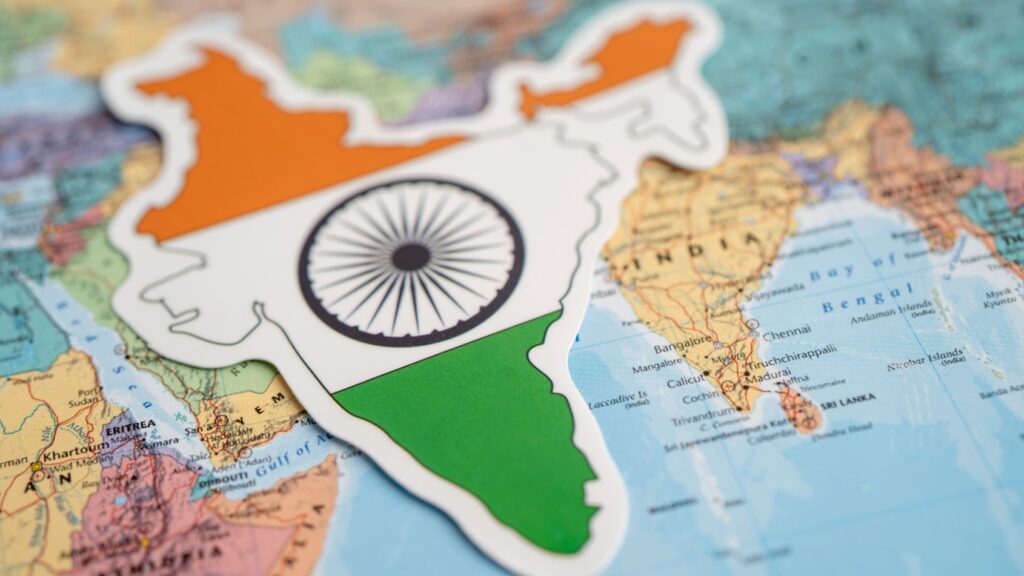
In 2023, India holds the esteemed privilege of hosting the G20 Summit, marking a pivotal moment in the nation’s diplomatic and economic journey. This occasion shines a global spotlight upon India, presenting a golden opportunity to demonstrate its capabilities and vision on the world stage.
The G20, to elucidate, is an annual congregation where the titans of global economies converge to discuss pressing international matters. In a landmark move, India, representing the South Asian region, is poised to chair this influential gathering in 2023, underlining its rising prominence in global affairs.
The summit’s agenda is expected to encompass paramount issues such as economic resilience, addressing climate change, and fortifying global health. As the host, India is presented with an unparalleled platform to articulate its perspectives and advocate for its priorities within these areas.
Beyond the political and diplomatic dimensions, the summit also augurs well for the Indian economy. The influx of delegates and international media is anticipated to invigorate local businesses and boost tourism.
Furthermore, as India showcases its prowess, especially in the technological realm, it could very well attract prospective foreign investors, fostering future economic partnerships.
To encapsulate the potential dividends for India:
- Global Visibility: As the world turns its gaze towards India, the nation has a prime opportunity to manifest its achievements and aspirations.
- Economic Stimulation: The gathering will likely stimulate local commerce, courtesy of the international attendees.
- Prospective Investments: Showcasing India’s strengths may well position it as a lucrative destination for future foreign investments.
- Technological Showcase: India can present its technological advancements, potentially piquing the interest of global investors.
- Diplomatic Acclaim: By successfully hosting such a significant event, India enhances its diplomatic stature on the world stage.
In essence, the G20 Summit 2023 represents more than just a meeting; for India, under the aegis of its G20 Presidency, it signifies a monumental stride in its global journey. Reflecting upon G20 History, it becomes evident that this is not merely a moment in time but a chapter in India’s evolving global narrative.
Conclusion
Understanding forums such as the G20 is of paramount importance. Such knowledge not only enriches discussions and interviews but also fosters a comprehensive global viewpoint.
Delving into the G20 history reveals a tapestry of collective triumphs and challenges. The forthcoming G20 Summit 2023, set to be held under India’s G20 Presidency, is not merely a temporal event. Rather, it stands as an embodiment of the world’s shared endeavour towards collaboration and progress. By embracing this cooperative ethos, one positions oneself to harness boundless global opportunities.

